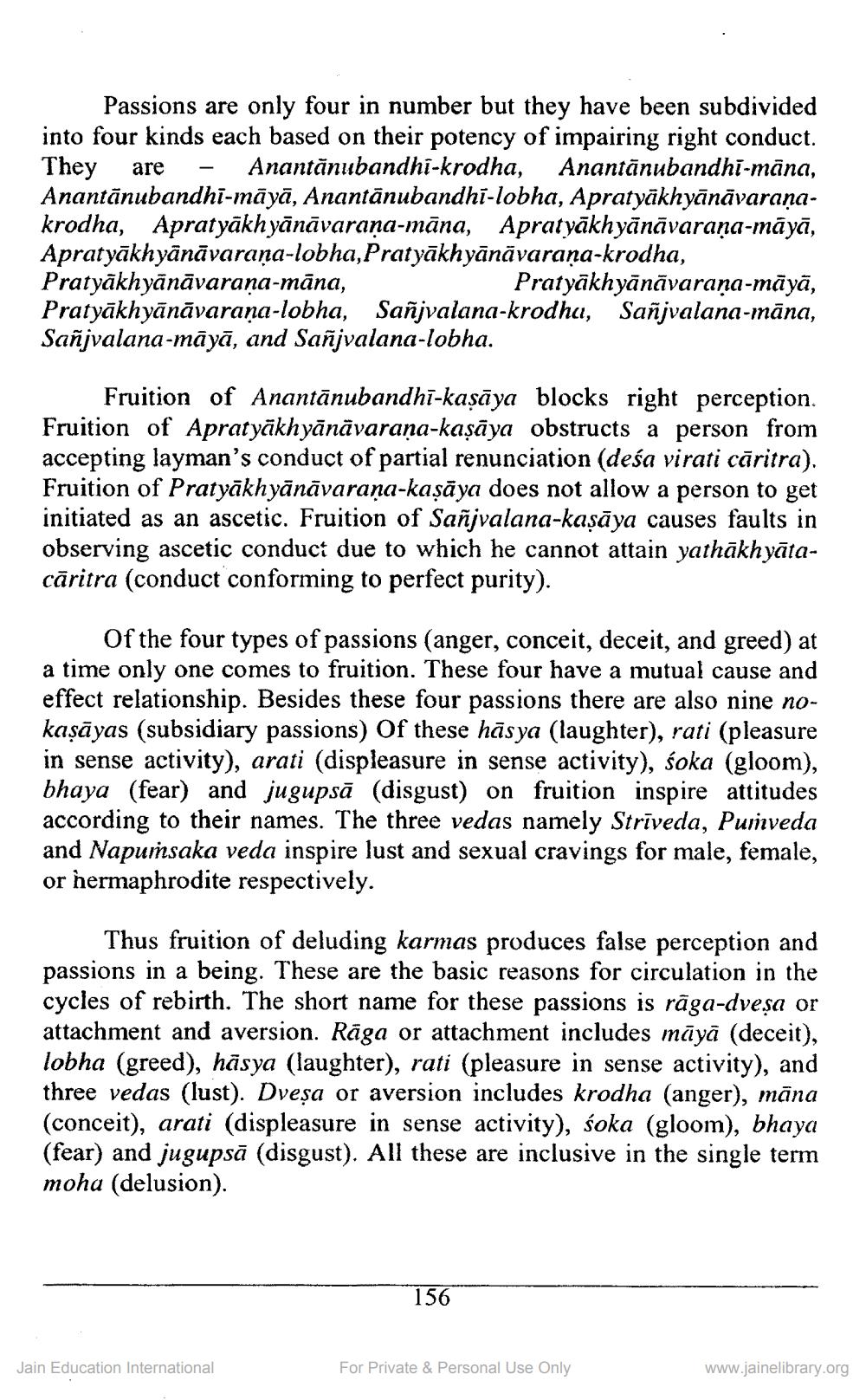________________
Passions are only four in number but they have been subdivided into four kinds each based on their potency of impairing right conduct. They are - Anantānubandhi-krodha, Anantānubandhi-māna, Anantānubandhi-māyā, Anantānubandhi-lobha, Apratyākhyānāvaraņakrodha, Apratyākhyānāvarana-māna, Apratyākhyānāvaraņa-māyā, Apratyākhyānāvaraņa-lobha,Pratyākhyānāvarana-krodha, Pratyākhyānāvaraṇa-māna,
Pratyākhyānāvaraņa-māyā, Pratyakhyānāvarana-lobha, Sañjvalana-krodha, Sa7jvalana-mãna, Sañjvalana-māyā, and Sañjvalana-lobha.
Fruition of Anantānubandhi-kaṣāya blocks right perception. Fruition of Apratyākhyānāvaraṇa-kaṣāya obstructs a person from accepting layman's conduct of partial renunciation (deśa virati cāritra). Fruition of Pratyākhyānāvaraņa-kaṣāya does not allow a person to get initiated as an ascetic. Fruition of Sañjvalana-kaṣāya causes faults in observing ascetic conduci due to which he cannot attain yathākhyātacaritra (conduct conforming to perfect purity).
Of the four types of passions (anger, conceit, deceit, and greed) at a time only one comes to fruition. These four have a mutual cause and effect relationship. Besides these four passions there are also nine nokaşāyas (subsidiary passions) Of these hāsya (laughter), rati (pleasure in sense activity), arati (displeasure in sense activity), śoka (gloom), bhaya (fear) and jugupsā (disgust) on fruition inspire attitudes according to their names. The three vedas namely Strīveda, Purveda and Napumsaka veda inspire lust and sexual cravings for male, female, or hermaphrodite respectively.
Thus fruition of deluding karmas produces false perception and passions in a being. These are the basic reasons for circulation in the cycles of rebirth. The short name for these passions is rāga-dveşa or attachment and aversion. Rāga or attachment includes māyā (deceit), lobha (greed), hāsya (laughter), rati (pleasure in sense activity), and three vedas (lust). Dveșa or aversion includes krodha (anger), māna (conceit), arati (displeasure in sense activity), śoka (gloom), bhaya (fear) and jugupsā (disgust). All these are inclusive in the single term moha (delusion).
156
Jain Education International
For Private & Personal Use Only
www.jainelibrary.org




